#Reducing Plastic Waste
Explore tagged Tumblr posts
Text
The Transformative Journey of the Bioplastic Packaging Industry
The global bioplastic packaging market size is expected to reach USD 50.57 billion by 2030. The growth of the global plastics packaging industry is likely to be driven by the increasing consumption of plastics in packaging food, beverages, cosmetics, personal care, and consumer goods.

Gain deeper insights on the market and receive your free copy with TOC now @: Bioplastic Packaging Market Report
Bioplastics are plastics that are made from renewable sources such as corn, sugarcane, potato, wheat, rice, vegetable oil, or cellulose. There are two types of bioplastics, namely biodegradable plastics and non-biodegradable plastics. Biodegradable plastics include polylactic acid, starch blends, PBAT, and PBS, while non-biodegradable plastics include polyethylene, polyethylene terephthalate, polyamide, and polytrimethylene terephthalate.
Bioplastic packaging is considered to be an environment-friendly solution and helps enhance the final product’s appearance. Growing usage of bioplastics in flexible packaging is expected to fuel market growth. The growing demand for food, due to the rising global population, is a key factor driving the demand for flexible packaging. Moreover, the packaged food industry in the U.S. and Europe has grown tremendously in recent years. Furthermore, increasing concerns regarding toxins in petrochemicals, along with depleting crude oil reserves, are driving the development of bio-based polymers.
Regulations by most governments restricting the consumption of petroleum-based plastics in certain applications such as food packaging and medical devices are expected to further incentivize bioplastic production in the plastics industry. However, the high cost as compared to conventional plastics is a major factor restraining the market growth. Currently, low prices of conventional plastics are making it difficult for bioplastics to achieve competitive pricing.
#Bioplastic Packaging#Sustainable Packaging#EcoFriendly Materials#Green Packaging#Biodegradable Plastics#Plant Based Packaging#Circular Economy#Packaging Innovation#Reducing Plastic Waste#BioMaterials#Plastic Free Packaging#Environmentally Friendly#Packaging Solutions#Bioplastics#Compostable Packaging#Renewable Materials#Packaging Design#Responsible Consumption#Sustainable Choices#Future Of Packaging
1 note
·
View note
Text
youtube
This is also the reason older generations say younger generations don’t know how to fix things!
#Youtube#some more news#cody johnston#right to repair#big tech#fast fashion#planned obsolescence#fuck apple#john deere#elon musk#Tesla#leftist#leftism#socialism#agriculture#U.S.A#recycling#reduce reuse recycle#plastic waste#tech waste#please recycle#capitalism#late stage capitalism
54 notes
·
View notes
Text

It was time to throw out a threadbare pyjama top. I removed the buttons from the top first though. They might come in handy one day for a mending job and plastic buttons don't really belong in landfill.
#minimal waste#zero waste#recycling#reduce reuse recycle#landfill#plastic#clothing#resources#thrift#eco living
11 notes
·
View notes
Text
Since its emergence as a symbol of Remembrance after the First World War, poppies have taken on various shapes and sizes.
From handmade silk and cotton poppies to wartime poppies, 2023 sees the biggest change in the poppy’s design for a generation.
Made entirely from paper, the new plastic-free poppy is available alongside stock of the existing poppy to reduce waste and can be recycled in ordinary paper recycling collections.
As we approach Remembrance Sunday, please wear a poppy to show the Armed Forces community you care and help us raise vital funds to support Serving personnel, veterans, and their families all year round.
#Remembrance Sunday#Remembrance#Field of Remembrance#Remembrance Sunday 2023#World War I#World War II#poppies#Armed Forces#military#military families#veterans#Royal British Legion#British Royal Family#plastic-free poppy#reduce waste#recycling
41 notes
·
View notes
Text
People be out here saying "don't get the free plastic bags from the store, just buy reusable ones!" as though my parents haven't been using the same 10 free plastic bags for the past seven years.
Most things are reusable if you have enough determination.
This is a shitpost I support environmentalism and also people who need disposable shit for health reasons I just thought this was funny please don't hate me-
#environment#environmentalism#reusable#reduce reuse recycle#recycling#waste disposal#plastic bag#shitpost#made this post because i (college) student was buying emergency groceries and realized that i forgot my bag#and i had too much stuff to carry in my arms so the cashier asked if i wanted a bag#and my first thought was 'oh good a free bathroom trashbag'#like yes plastic bag are still bad but i also think it could be interesting to talk about the ways in which we still reuse disposable thing#i have been using the same paper plate for the past three meals#i throw it out when i think it will attract ants#growing up my parents subconsciously taught me every possible way i could reuse a disposable bag#so i don't completely mind it when i get one from the store because for me it's really similar to a normal reusable bag
44 notes
·
View notes
Text
💉💊🗑️Addicted To Trash🗑️💊💉
Food scraps take up the most landfill space in the US. Think about that for a moment & process it. As much food insecurity as there is in the US. As many people that die from poverty & from hunger.
The millions of children that face an empty refrigerator & empty pantry every day after school. That don't have money for lunch and don't have access to a free lunch or lunch voucher program.
The parents that skip meals multiple days in a row so that their children can eat.
The sugar sandwiches, cereal with water, knocking on neighbors doors begging for food.
All so Americans that have more than they'll ever need can throw out more than they can ever eat while millions are food insecure and starve within the same country.
Buy loose fruits & vegetables at a local food market, buy food with minimal packaging, only purchase groceries & food items that you actually need & will use & avoid delivery, take out, fast food, fast casual, eating at a sit down restaurant, coffee & donut shops.
Per Google: Food waste accounts for 6% of global greenhouse gas emissions.
According to the Environmental Protection Agency, food scraps are the number one item sent to landfills in the United States.
Food waste accounts for 22% of municipal waste in the U.S.
We discard more food than any other country, even as the number of people experiencing food insecurity grows.
Food waste, which includes everything from meat and fish to fruit and vegetables, can take anywhere between one month and a year to decompose.
However, food decomposition can take longer in a landfill while releasing greenhouse gases into the atmosphere.
Americans are addicted & brainwashed. You can literally go days and even weeks as an American during hotter months without encountering air that hasnt been artificially cooled. Brainwashed! Im 42 and my grandparents in rural Georgia that I visited and stayed with for a month every year as a kid didnt have air conditioning. Yet todays modern American life claims it isnt possible yet I did it for a month every year in my youth.
Per Google: Air conditioning, heating & refrigerators are the biggest wasters of energy in American households. The cooling industry is important, but it is also incredibly polluting – accounting for around 10% of global CO2 emissions. That is three times the amount produced by aviation and shipping combined. And as temperatures around the world continue to rise due to climate change, the demand for cooling will increase too.
The average American sets their AC to 68 to 72 degrees which is fucking absurd and ridiculous.
Set air conditioning to 78 to 80 when you are home and 80 when you are asleep and not home.
I set my AC over the summer even during the current heat wave to 80 — I dont have central air in my 1 bedroom apartment, I have wall units in my living room & bedroom.
Use fans, wear light/minimal clothing or go naked inside your home (Ive done this) and drink 64+ ounces of water a day.
The average American keeps thermostat during winter at 72 to 80 degrees which is fucking absurd.
Per Google: Heat and air contributing to nearly half of a home’s energy usage. Today, 90% of American households have air-conditioning. America is addicted to home heating and cooling, consuming more energy for air-conditioning than the rest of the world combined.
Keep thermostat during cold months at 68 degrees. Layer clothing and wear blankets inside.
Per Google: In the same report, the I.E.A. predicted that worldwide energy use by air-conditioners would triple by 2050, “requiring new electricity capacity the equivalent to the combined electricity capacity of the United States, the E.U. and Japan today.”
The number of global cooling devices is estimated to increase from 3.6 billion to 9.5 billion by 2050, according to a report by the United Nations Environment Programme (UNEP) and the IEA.
Without radical changes to the cooling industry, HFC emissions are projected to contribute warming equivalent to 20% of CO2 output in 2050, the UNEP report warns.
However, some say that refrigeration could be the number one way to reduce carbon emissions.
Per Google: Much of the world’s recent growth in cooling capability has been an adaptive response to global warming. The problem is self-perpetuating, because the electricity that refrigerators and air-conditioners run on is mostly generated by burning fossil fuels.
Part of the problem with refrigerants, however, is that much of the harm they cause is after we as consumers have finished using them. It occurs out of sight, and so largely out of mind.
Roughly 90% of refrigerant emissions occur at equipment’s end of life, according to Project Drawdown, a nonprofit that analyses climate solutions.
The most common HFC found in domestic fridges is HFC-134a, which has a global warming potential 3,400 times that of carbon dioxide. A typical fridge can contain between 0.05kg and 0.25kg of refrigerant, which if it leaks into the environment, the resulting emissions would be equivalent to driving 675km-3,427km (420-2,130 miles) in an average family-sized car.
Refrigerators are responsible for about 4% of a home's emissions, or 89 kg of CO2 per year.
The correlation between growth in efficiency and growth in consumption is not accidental.
Similarly to air conditioning & heating, if you've noticed a trend, just setting the temperature a few degrees higher/lower can make an extremely significant difference in terms of energy consumption, greenhouse gas emissions & your contributions to climate change.
Do people care enough to change their respective thermostats just a few degrees?
Set your refrigerator to between 35 and 38°F, and your freezer to between 0 and 5°F.
A refrigerator that's 10°F colder can use up to 25% more energy.
Ironically, as climate change progresses further, our home heating and cooling needs will continue to increase in order to insulate us from extreme weather.
"Ironically" or by design?
Home heating is the single largest source of power consumption in the home, and air-conditioning is the third.
Further, air conditioning in the U.S. accounts for 5% of total energy consumption annually, and releases approximately 100 million tons of carbon dioxide into the air.
When we asked Americans whether they program or adjust their home thermostats before they leave the house, an overwhelming majority (73%) said they do not.
The solution to so much environmental damage caused by Americans ridiculously blasting their central AC & heat is right in front of their faces and is blindingly obvious yet the mindless ecocide continues.
Why? Because you don't want to be slightly unfuckingcomfortable?
Layered clothing + blankets & lower setting central heat = Winter
Lighter minimal clothing + fans + higher setting central air = Summer
It IS that easy.
I do it every summer & winter in my 1 bedroom apartment.
Why don't 73% of Americans?
Because they don't fucking feel like it, that's why.
Avoid disposable products & avoid single use products.
Avoid ordering delivery & takeout & avoid buying food & drinks at restaurants, fast casual, fast food as it produces single use containers, cups, straws, utensils, napkins.
Avoid food packaging.
If you buy prepackaged snacks, consider making them yourselves — homemade granola bars, pop tarts, trail mix recipes, etc. can easily be found on Pinterest.
•Replace plastic water bottles with water filter + stainless steel thermos bottle. •Buy items with less packaging. •Purchase reusable containers. •Minimalism — buy needs only, not wants. •Repair instead of replace items. •Buy refurbished tech & electronic devices. •Go paperless - paper accounts for 40% of landfills in the US - 40 fucking percent!
Makeup wipes take 100 years to decompose.
Stop using make up wipes & use water, soap & a face towel instead.
Clothes can take up to 40 years to decompose!
Stop buying new clothes.
Buy used clothes only when needed from thrift shops, consignment shops, Goodwill, online thrift shops, Depop, Mercari, Poshmark.
The micro mininskirt I am wearing now is from Wet Seal and I got it when I was 17 over 25 years ago.
Outside of a missing button, it is good as new and I wear it all the time.

Stop with fast fashion.
Stop buying Shein, Fashion Nova, Romwe, Zaful. Stop going to the mall. Stop buying Forever 21 and H&M. Stop going to department stores. Stop buying Macys. Stop shopping at outlets. Stop buying from Nordstrom Rack. Stop buying clothes on Wish & Amazon.
Use and reuse the clothes you already have.
When they are no longer wearable, buy used clothes only — never new — from a thrift shop, consigment store, Goodwill or Depop, Poshmark or Mercari.
Stop buying new clothes!
Batteries can contaminate soil indefinitely -- use rechargeable batteries.
Sanitary pads are made of plastic & can take up to 800 years to decompose. 800 years!
Replace sanitary pads with period underwear (I use Proof) with ob tampons without applicators (what I do) or period cups with a stem to remove & insert (boil & sterilize after each cycle) or menstrual discs.
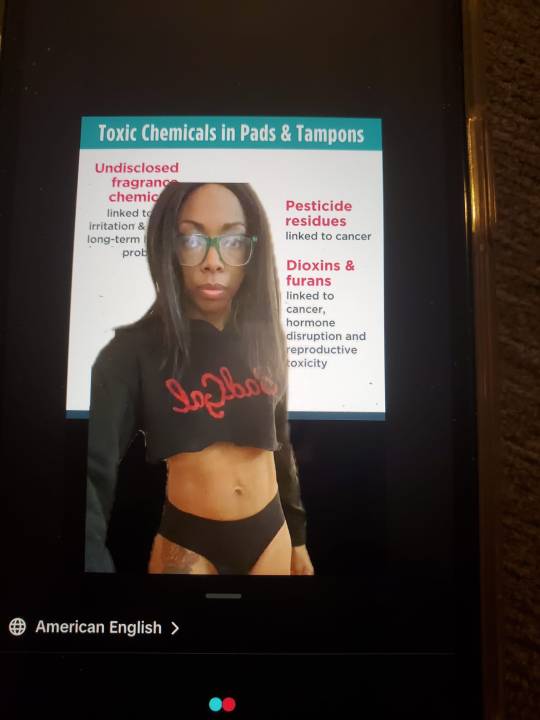
Pads & plastic tampon applicators have toxins, chemicals & pesticides that have been proven to cause excessive menstrual bleeding (heavy periods since 11 stopped when I switched from Always pads & Tampax tampons with plastic applicators to Proof Period Underwear & ob tampons without applicators), uterine cancer, fibroids, tumors & other reproductive issues.
Washer machines are also a problem.
Dryer sheets arent biodegradable — stop using them.
Doing laundry in a washer machine releases microplastics into the environment which ends up endangering, harming & killing oceanic creatures and polluting the ocean.
Handwash clothes when you can.
Do not own a washer and dryer as you will be encouraged to wash laundry more due to it conveniently being located inside your home.
Instead, opt for a living space without a washer and dryer (like my 1 bedroom apartment that Ive lived in for 10 years).
Limit trips to the laundromat to once a month or once every other month. Rewear clothing.
You dont have to “throw away clothes as dirty” after one use.
If it isnt stained or smelling, rewear it repeatedly.
Only go to the laundromat when you are out of clean clothes to wear.
I go about once a month to every two months.
If you already have a washer and dryer in your home, limit your use of them as much as possible.
Disposable diapers take 500 years to decompose.
500 fucking years.
Use cloth diapers.
Per Google: Yard waste is one of the top ten waste items in US landfills.
Per Google:
By weight, grass is the biggest component of yard waste, averaging half of all yard waste.
Leaves and brush each provide one quarter.
Either dont have a yard & dont live in a house as living in a house is itself wasteful, a climate change driver & overconsuming energy to simply even heat & cool such a large space.
Or if for some bizarre reason you feel you "need" a house or if you already own a house with a yard, do the following per junkloggers.com: When you mow, “grasscycle” by leaving grass clippings on your lawn instead of bagging then. The clippings will return nutrients to the soil instead of taking up space in landfills. Donate healthy plants that you want to replace to community gardens, parks and schools. Using recycled materials such as compost and recycled hardwood mulch help remove yard waste from landfills and reduces the “footprint” of your own landscape.
Follow the 5 Rs: •Refuse: Maximalism, consumerism, materialism & overconsumption, FOMO, sales & clearances, shiny new toy syndrome, shopping to impress others, trends, advertising that has intentional hypnotic messaging, includes brainwashing tactics, seductive messaging, endless repetition, psyops elements, psychological warfare to buy what they are advertising & selling. •Reuse: What you already have. •Reduce: What you buy & use therefore you will have less to throw away and recycle. •Repurpose: Fix broken glasses like I did, dont buy a new pair. I just bought a glasses repair kit for a few dollars versus wasting money on a new frame, new lenses & the fuel that would have been wasted to deliver the new pair of glasses to me. Repurpose gift bags & use reusable grocery bags as totes. Reuse junk mail and newspaper as gift wrap. •Recycle: Aluminum is indefinitely repurposable but takes 800 years to biodegrade. Wash out containers, check recycling numbers, separate items. Recycling uses oil!
Keep in mind that Exxon and the oil industry relentlessly promoted recycling before it became ubiquitious because oil is needed to recyle.
Recycling uses a huge amount of energy and is itself a contributor to climate change.
Its important to do all five Rs.
Dont just mindlessly buy use throw away recycle like big oil and capitalism endlessly brainwash you to do. All those times that you threw trash away as a kid in school, did you ever think where it was going? All those times your dad took the trash out and left it by the curb when you were young, did you ever think about where that trash was going? Did you ever think about landfills? Oceanic pollution & waste? Air pollution & air quality? Non biodegradable waste? Greenhouse gas emissions? Methane gas emissions? Landfills burning? Mountains of trash? Ofcourse not. If youre American, it was, out of sight out of mind. Im 42. When I was in school playing sports, it was throw out the empty plastic Gatorade bottle and back to softball practice. Back to track practice. Throw away trash, return lunch tray, on to my next class. Mindless. Brainwashed. Addicted to trash. Air quality near landfills is also poor and can be hazardous to humans and wildlife. The unwelcome sights, sounds, and smells of landfills make life unpleasant for nearby residents and reduce the land’s purpose. Overfull landfills may require clearing arable land and forests to create more room. Mindless. Brainwashed. Addicted to trash.
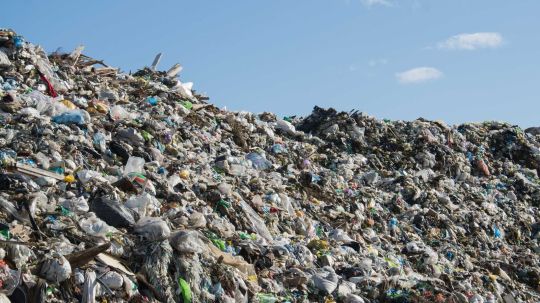
A plastic straw takes 400 years to decompose.
Did you ever think about that on your birthday at the McDonalds playground as a child as you sipped on your Hi-C Orange from your plastic straw?
Programmed.
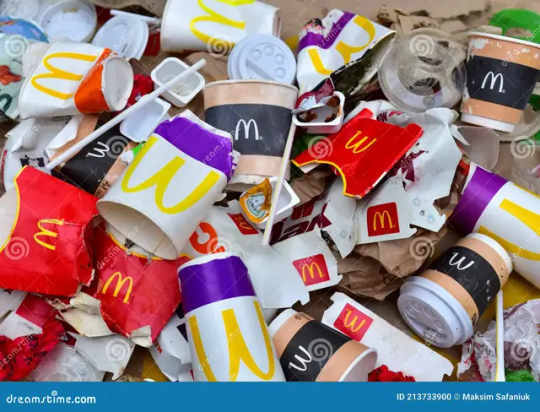
Plastic wrap takes 1000 years to decompose.
Do you think about the amount of plastic used to wrap bottled water, packaged items, consumer goods? Or do you buy, consume, use, throw away?
Mind controlled.
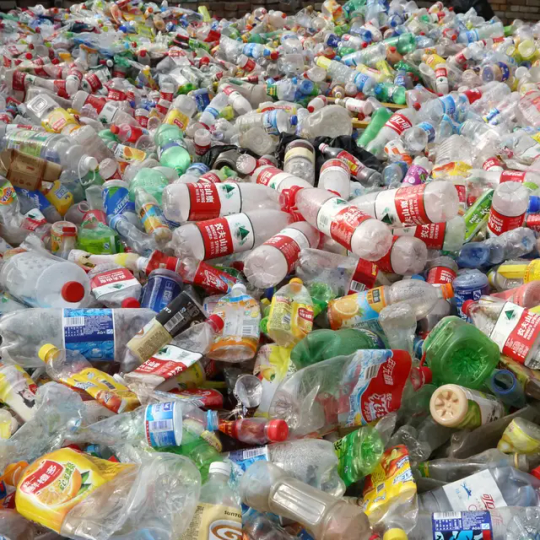
Ziploc bags take 1000 years to decompose. Did you think about that as a kid in the cafeteria when you removed the PB&J sandwich that your mother made for you every day?
Brainwashed.
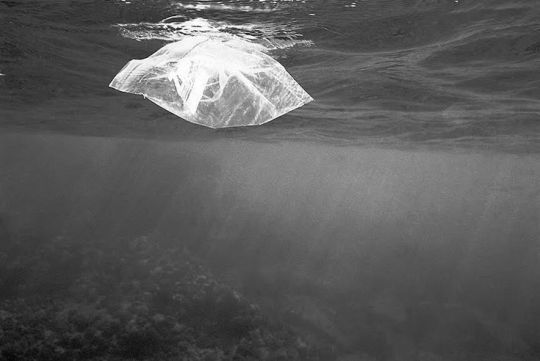
Stop vacationing - airplanes, cruises & automobiles are enormous drivers of climate change. Stay local - go to a library, state fair, amusement park, carnival, museum, science center, have a staycation - movie marathon at home etc, take a local class - dancing, pottery, painting, etc., visit local farms & parks.
Deprogram yourself from the belief that you need to take annual vacations, summer trips, tropical vacations, exotic vacations or that you “need to get away” —
Get away from what?
Zombified.
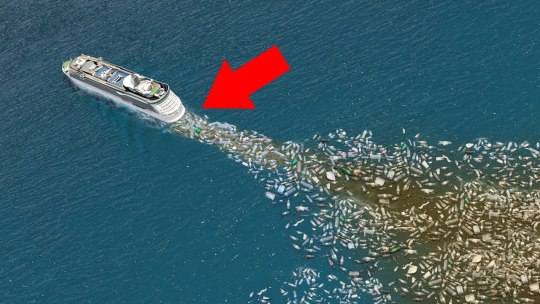
Avoid driving as much as you can. Automobiles and the fossil fuels to drive them are a huge contributor to climate change. Wherever possible, do not drive and use as minimal gas as you can. Walk, ride your bike or a scooter, skateboard, roller skate or rollerblade or take public transportation where available if you have to use a car try to carpool or rideshare. Question if you really have to go wherever youre driving and is it worth the additional contributions youre making to climate change.
Can you recreate wherever youre going at home? Can you watch the sporting event on TV, stream the concert, watch the movie when it releases to VOD? Do you need to meet up in person or can you do a video call on Twitch or Whatsapp if they are not a walkable distance from you? Can you cook instead of eating out? Can you take an online class vs driving to the class? Can you walk to a local food market vs driving to a grocery chain or big box retail store?
If you dont need to drive where youre going, dont drive.
There are millions of cars on the roads in America every day contributing endlessly to climate change so if you dont have to contribute dont and minimize your contributions as much as possible. If you can sell or donate your car then do so. If you live in an area with minimal public transportation, then drive it as little as possible.
Stop going out to just go out or socialize or be seen as its pointless & unnecessary.
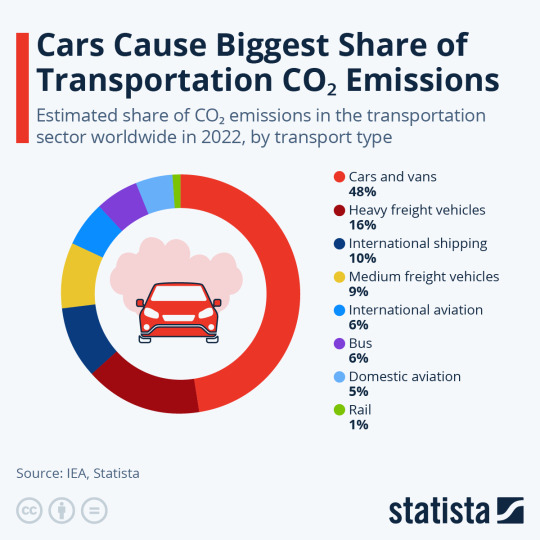
Do your hair yourself and/or cut your hair off (I shave my head bald every 3 to 6 months) & stop driving to the hair salon.

Shave your eyebrows (what I do) and stop driving to the nail salon to get eyebrows waxed or threaded or stop shaping your eyebrows.
Stop painting your nails (what I do) or paint them yourself and stop driving to the nail salon.
Stop buying new stuff and stop driving to the mall.
Stop eating out and stop driving to restaurants.
Stop getting massages and stop going to massage parlors.
Go paperless wherever you can and stop going to the post office.
Stop going to bars and nightclubs, its pointless & a waste of time.
Eliminate bars, nightclubs, shopping malls, restaurants, movie theaters, hair salons, nail salons, massage parlors, post office, grocery stores, big box retail from your life and that should minimize the driving you do.
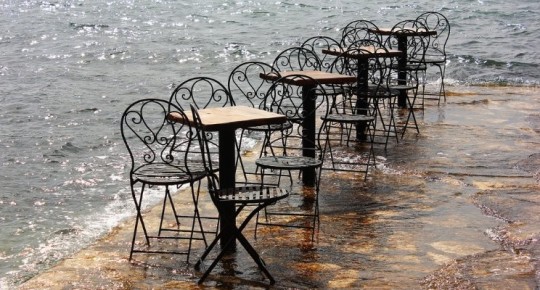
Dont have children.
By far, human beings are the biggest contributors to climate change so why would you ever willingly produce one (or more than one) given the amount of ecological destruction & climate change humans have already caused?
If everyone avoided having children, we could voluntarily make ourselves go extinct and save planet earth vs the current trajectory of the earth being inhabitable within 100 years and then humanity colonizing Mars and then other planets then destroying those planets in a few thousand years then moving on to the next.
Wash rinse repeat. Stop the cycle.
People are financially rewarded for ecocidal practices so this wont stop so we need to voluntarily stop ourselves and stop reproducing and stop endlessly propagating our species — human — that has been responsible for over 75k animal species going extinct, the destruction of the ozone layer, climate change, greenhouse gas emissions, endless landfills, deforestation, oceanic & air pollution, etc.
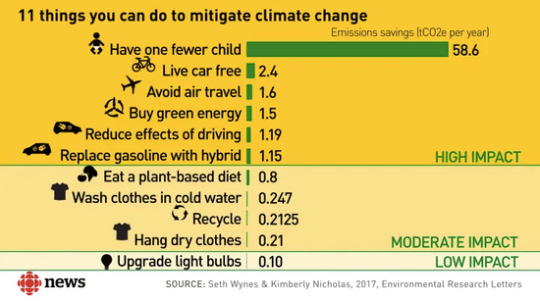
Leather shoes & rubber leather soles take 50 to 80 years to decompose.
Buy flats and wear them until they are unusable. Once that occurs, buy new flats.
You should only be doing this once every few years like I am.
If you stand at work, buy high quality sneakers and only replace when they are breaking down.
I havent bought shoes in over five years & sneakers in over ten years.
Cut hair off like I do and stop using any hair products.
I shave my head bald every 3 months and do not do any hair maintenance. I dont use shampoo, conditioner, grease, oil, moisturizer, hair wraps, brushes, etc and as you can see my hair is perfectly fine.

Buy refurbished tech & electronic devices.
Dont ever buy new.
Look up cobalt mines in Congo and how the materials to make batteries for cell phones, EVs, TVs etc (cobalt) is causing a genocide in Congo as it is the only country that has this mineral so Apple, Samsung, Tesla etc desperately need it for their devices.
Look up the warlords fighting over these mines and the civilians being murdered as a result.
Look up the conditions of the cobalt mines — they employ women and children, no protective gear is issued despite them working in underground mines, no labor laws so they are working 12 to 16 plus hour shifts up to seven days a week exposed to dangerous conditions, toxins, chemicals with no protective gear, clothing or eyewear, they are worked like absolute slaves and are dying in these mines.
They are literally dying for your pink iPhone.

Fuck IKEA. Stop buying furniture to impress people who don't give a fuck if you live or die much less what your fucking furniture looks like.
Per Google: Most furniture is made of non biodegradable & non recyclable materials like treated wood that can't be recycled.
It takes treated wood years to decompose, and any synthetic fabrics from covers or cushions also take a long time to break down.
A polyurethane seat cushion will take up to 1,000 years to decompose.
Only replace furniture if it is broken beyond the point of repair.
In ten years of living in my 1 bedroom apartment, I have only purchased furniture once.
Dont purchase furniture to impress people, for entertaining purposes, to keep up with your social circle, to flex.
Brainwashed. Mindless. Addicted to trash. Consumerist.
Overconsumption. Materialistic. Out of sight, out of mind.
Who cares if we destroy earth, we're colonizing Mars.
An 80 year human life is worth more than 75k extinct animal species and is worth thousands of tons of plastic that will take hundreds of years to break down in landfills and 6 football fields worth of forests being destroyed via deforestation.
Speciesism is cool as long as its humans being valued among all other species on the planet and even the planet itself.
Ecocide is cool. Environmental damage is whatever.
The destruction of the environment is just part of my brat girl summer.
Has anyone seen MaXXXine?

Who are the greys, Reptilians, minders & keepers?
#anti capitalism#ecocide#climate change#environmental justice#environmentalism#social justice#anti capitalist#communalism#corporatism#landfill#pollution#climate action#climate justice#consumerism#materialism#overconsumption#plastic#brainwashing#mind control#hypnotized#air conditioning#central heating#modern life#garbage#zero waste#reduce reuse recycle#carbon dioxide#carbon footprint#refrigerator#hfc
10 notes
·
View notes
Text
I cannot believe people are suggesting that you can use laundry detergent containers as watering cans for gardens.
You cannot use former laundry detergent containers as watering cans for your gardens.
#i thought this was common knowledge#recycled words#recycling#recycle crafts#reduce reuse recycle#recycle#plastic waste#plastic
6 notes
·
View notes
Text

#truth#save the planet#reduce reuse recycle#use reusable products#say no to plastic waste#reusable cups
2 notes
·
View notes
Text




V1 (left) and V2 (right) of my re-usable linnen tea bags. V1 looks cuter, but cannot easily be opened and is difficult to clean. V2 is a lot easier to clean, but hangs open at the top of a cup of tea, so is slightly more difficult to use. I’ll make a few more and keep using them for a while whilst thinking about a V3.
#sewing#sewblr#me myself and i#reduce reuse recycle#reusable#reusable tea bag#linnen tea bag#sewists of tumblr#plastic free#zero waste#craftblr#tea
5 notes
·
View notes
Text
Preserving Our Blue Planet: Practical Ways to Save the Ocean
Shaina Tranquilino
November 18, 2023

The ocean, covering more than 70% of our planet's surface, is a vital ecosystem that provides us with numerous benefits. It regulates climate, absorbs carbon dioxide, and supports biodiversity. However, due to human activities, our oceans are facing unprecedented threats such as pollution, overfishing, and habitat destruction. To secure the future health of our blue planet, it is crucial for each one of us to take action. In this blog post, we will explore practical ways through which we can collectively save the ocean.
1. Reduce Plastic Consumption: Plastics have become a major menace to marine life. By reducing plastic consumption in our everyday lives, we can significantly limit its impact on the ocean. Start by replacing single-use plastics with reusable alternatives. Opt for eco-friendly packaging when purchasing products and support businesses that prioritize sustainable practices.
2. Proper Waste Disposal: Improper waste disposal leads to large amounts of garbage ending up in rivers or oceans through runoff. Always dispose of trash responsibly and recycle whenever possible. Participate in local beach cleanups or organize your own community cleanup events to prevent litter from reaching the ocean.
3. Support Sustainable Fishing Practices: Overfishing has depleted fish populations worldwide and disrupted ecosystems. As responsible consumers, choose sustainably sourced seafood certified by organizations such as the Marine Stewardship Council (MSC). Educate yourself about sustainable fishing practices and advocate for their implementation within your community.
4. Minimize Chemical Usage: Toxic chemicals from household cleaning products, fertilizers, and pesticides often find their way into rivers and eventually reach the ocean through runoff. Opt for environmentally friendly alternatives or make your own natural cleaners using ingredients like vinegar and baking soda. Embrace organic gardening methods that rely less on chemical inputs.
5. Conserve Water: Conserving water not only helps preserve this precious resource but also prevents excessive runoff of pollutants into waterways. Reduce your water consumption by fixing leaks, taking shorter showers, and installing water-efficient appliances. This way, you can indirectly contribute to the health of our oceans.
6. Support Marine Conservation Organizations: Numerous organizations tirelessly work towards protecting and restoring our oceans. Consider supporting their efforts through donations, volunteering, or raising awareness about their initiatives on social media platforms. Collaborate with like-minded individuals in your community to organize fundraisers or educational events centred around marine conservation.
7. Educate Yourself and Others: Increasing awareness is key to saving the ocean. Stay informed about current environmental issues affecting the ocean's health and share this knowledge with others. Engage in conversations, use social media platforms as a tool for spreading awareness, and support educational programs focused on marine conservation in local schools and communities.
Saving the ocean requires collective action from individuals, communities, governments, and businesses alike. By implementing these practical steps in our daily lives, we can significantly reduce our impact on the fragile ecosystems that lie beneath the waves. Let us remember that even small changes can make a big difference when it comes to preserving our blue planet for generations to come. Together, we have the power to protect and restore our magnificent oceans – an invaluable treasure worth fighting for.
#save our oceans#ocean conservation#protect our seas#clean sea initiative#sustainable living#reduce plastic waste#marine life protection#save marine ecosystems#beach clean up#preserve our oceans#ecofriendly choices#go green for the ocean#conserve water#choose reusable options#support ocean organizations#educate for change
5 notes
·
View notes
Text
Another episode of I'm someone who can't rid of anything that might be useful because everytime something ends up useful it just boosts my confidence in saving things:
My favorite hair scarf that was my very first one and i already bought it old as shit got a stain on it, and my grandma was hand washing it for me with just water because it is Delicate and the water itself put holes in it it was that worn/old. However I'm a sentimental fool who loved the stupid thing and it was my Literal Favorite so we had a big picture frame with a piece of art my grandma was going to toss (it was mass produced not an original, she bought it off of QVC once upon a time) and i just wrapped the head scarf around the back of the old print and it actually looks really good we both love it even with the hole in the scarf. I'm also a sentimental fool who was thinking that maybe it'll get passed on one day as "grandma's/aunt's/sisters favorite head scarf" but idk I'm just a fool 😂

#solarpunk#sustainable#environment#practical solarpunk#environmentalism#environmentally friendly#sustainability#ecofriendly#eco friendly#low waste#low waste living#low impact#practical zero waste#zero waste in the city#zero waste living#zero waste#reduce#reduce reuse recycle#reusedmaterials#reduce plastic#reuseable#reuse#reduce waste#diy#diy art#fabric scraps#art#decor#home decor#picture frame diy
30 notes
·
View notes
Text
Link to the court document here
From the Guardian article:
Houston-based Inhance manufactures an estimated 200m containers annually with a process that creates, among other chemicals, PFOA, a toxic PFAS compound. The Environmental Protection Agency (EPA) in December prohibited Inhance from using the manufacturing process.
But the conservative fifth circuit court of appeals court overturned the ban. The judges did not deny the containers’ health risks, but said the EPA could not regulate the buckets under the statute it used. The rule requires companies to alert the EPA if a new industrial process creates hazardous chemicals. Inhance has produced the containers for decades and argued that its process is not new, so it is not subject to the regulations. The EPA argued that it only became aware that Inhance’s process created PFOA in 2020, so it could be regulated as a new use, but the court disagreed.
Inhance said in a statement its “technologies … keep thousands of tons of harmful chemicals and fuels out of the environment, preserve product quality, and ensure compliance with many global regulations”. However, the company in 2021 admitted the creation of PFAS is “an unavoidable aspect” of its process [...]
#horrible#all the more reasons to grow your own food reduce consumerist demand for products in plastic packaging and plastic products in gen#and to blow up company numbers to complain that theyre fucking over everyone#also ur local and state reps. stop doing business w these fucks!!!#my greens#epa#environmental justice#pollution#plastic pollution#plastic#toxic waste#manufacturing#green link
2 notes
·
View notes
Text
I kind of want to try making mead or ambrosia 👀
Obviously not right now because I have Shit To Do; but maybe during the summer after I’ve moved
#alcohol mention#Apparently you can make mead out of honey and I love honey so of course I have to try it#I want to make more food from scratch so I can reduce my plastic consumption#because my ten-year goal is to convert to a completely anticapitalist zero-waste lifestyle#Just for me… I don’t put pressure on anyone to do the same unless they’re well-off and being ridiculous about their consumption#Except for maybe encouraging people to switch to reusable water bottles if they’re in an area where the tap water is potable#(like where I live)#or flaunting my canvas shopping bag that I got for 5 dollars at a hardware store whenever possible#Okay I guess I do push people a little bit#But it’s all reasonable things directed at people I know are physically mentally and financially able to do those things#or I’ll just casually mention microplastics and pollution in conversation as a “fun fact”#But I’m not ridiculous about it with anyone but myself#I hold myself to some weird standards that I don’t hold others to and I’m fine with it#Obviously it’s the corporations’ faults that everything is the way it is and no single person can make a huge difference#But if everyone does one thing to help the planet; then it might buy us some time to change the system#There is also the issue of supply and demand; if more people reduce plastic intake then less plastic will be produced#But again: it’s very hard to be ethical in this society. EVERYTHING enjoyable is packaged in plastic and it sucks#(ok not literally everything but consider: most candy is wrapped in plastic and clothes have plastic tags and chips are in plastic#sushi is in plastic containers and meat is in shrink wrap or styrofoam and most modern chewing gum is a byproduct of vinyl#toys are packaged in plastic etc. etc.)
3 notes
·
View notes
Photo

Green surroundings are symbols of arable land, clean air, adequate water, reliable fire, or happy life; the fundamentals of ancient civilization, and therefore, risking such resources threatens to undo global achievements. Extreme climatic conditions result from our complications of ecosystems, we therefore ought to love green innovations, respect green spaces, save green life, and take care of one another. ℅ #art #love #green #elijahartivism #education #instagood #reduce #pollution #recycle #waste #reuse #plastic #jobrayarts #plantbased #tree #planting #contemporaryart #collector (at Kampala, Uganda, East Africa) https://www.instagram.com/p/CoEbvEWoYIA/?igshid=NGJjMDIxMWI=
#art#love#green#elijahartivism#education#instagood#reduce#pollution#recycle#waste#reuse#plastic#jobrayarts#plantbased#tree#planting#contemporaryart#collector
10 notes
·
View notes
Text
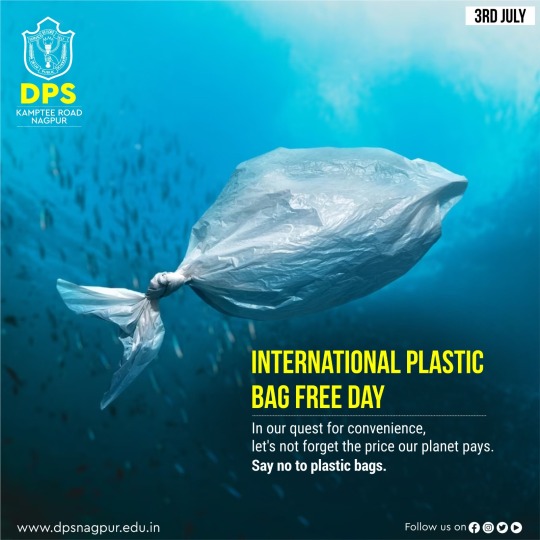
International Plastic Bag Free Day | Plastics give a helping hand, but they are polluting our land!
This day symbolizes the significance of taking small steps in refusing plastic bags, which can contribute to monumental leaps for our beautiful, clean, and green environment. By choosing reusable alternatives and raising awareness about the harmful effects of plastic bags, we empower ourselves to make a positive impact.
International Plastic Bag Free Day
DPS Kamptee Road Nagpur
#Plastic bag pollution#Single-use plastics#Environmental impact#Sustainable alternatives#Reduce plastic waste#Reusable bags#Plastic bag bans#Plastic bag recycling#Plastic bag awareness#Eco-friendly choices#Plastic bag legislation#Plastic-free living#Ocean conservation#Marine litter#Plastic bag consumption#Waste management#Green initiatives#Plastic pollution prevention#Community cleanups#Global environmental awareness
3 notes
·
View notes
Text
1 note
·
View note